College of Science, Engineering & Technology
From waste to clean energy production and equality
Prof Yali Yao from the Institute for Catalysis and Energy Solutions (ICES), formerly referred to as the Institute for the Development of Energy for African Sustainability (IDEAS), at the College of Science, Engineering and Technology, delivered her inaugural lecture entitled "Chemicals and fuels from wastes and CO2: A route of sustainability" on 16 February 2023.
Click here to view a recording of the lecture.
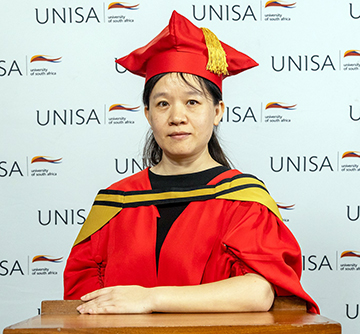
Prof Yali Yao
In setting the scene for Yao’s lecture, Prof Thenjiwe Meyiwa, Unisa Vice-Principal for Research, Postgraduate Studies, Innovation and Commercialisation, said: "Professor Yao’s research on catalysis and green energy solutions in reducing the environmental impact of fossil fuels certainly forms part of Unisa’s contributions in the service of humanity, hence the importance of this lecture today."
A very real threat to human existence
Energy is currently a hot topic in South Africa and globally, and its importance in sustaining our livelihoods and the economy cannot be overemphasised. In its current form, the energy concept is a double-edged sword in that, on one hand, it helps to build and sustain economies around the world, but on the other threatens the existence of humanity due to the increased release of greenhouse gases into the environment which ultimately leads to climate change challenges.
The 2022 United Nations Climate Change Conference (COP-27), hosted in Sharm El Sheikh, Egypt, was an acknowledgment of challenges caused by climate change, and by government, businesses and many other organisations around the world. It was also an effort to identify measures that will help mitigate the stresses of climate change to human survival.
Yao’s inaugural lecture focused on her research contributions, over a period of 16 years, into the production of alternative energy fuels and value-added chemicals in both laboratory and industrial projects. She has further looked into the development of low-cost iron-based catalysts and their preparation method. This enables the catalyst to operate under a wide range of temperature settings, and the use of syngas produced within the process to activate the catalyst rather than using pure gases. This allows process complexity, operation and carbon dioxide emissions associated with the use of pure gases to be reduced. Additionally, the catalyst used in Yao’s research has a high tolerance to nitrogen and carbon dioxide content, enabling easy conversion of carbon dioxide into hydrocarbons, thus resulting in a lower environmental footprint.
Peer praise
Responding to the lecture, Prof Celestine Sempunga from ICES emphasised the significance and relevance of Yao’s research in ensuring environmental sustainability. Sempunga said: "Professor Yao’s research is an important contribution to the efforts of addressing the issues of energy sustainability and its environmental impact, especially on the African continent, which has the least access to energy but has been severely impacted by climate change."
Sempunga further asserted: "Her research has focused on developing sustainable pathways of converting locally sourced municipal waste, forestry and agricultural crop residues, animal and industrial waste and carbon dioxide (a significant contributor to global warming), into useful forms of energy and valuable chemicals." All of this is backed up by massive amounts of experimental data gathered over the course of her career. Sempunga concluded: “Professor Yao has worked hard in reducing the environmental impact of fossil fuels. Her work in adsorptive desulphurisation of fuels is critical to the petroleum industry, because sulphur is harmful not only to the environment but also to the fuel refining processes.”
Some of Yao’s noteworthy contributions in the field of process synthesis include the development of a new-generation of chemical descriptive language (XDL) relating to the conversion of different waste and renewable materials into liquid fuels using the Fischer-Tropsch process. Unlike traditional processes, the process she developed is more robust, modular, mobile and less capital intensive, making it more suitable for small-scale applications, particularly on the African context.
Research prowess
Yao’s research is centred on catalysis and energy solutions. Some of her research results have been applied successfully in industry projects. Notable projects include producing chemical and liquid fuels from waste materials, carbon dioxide capture and conversion, syngas generation and conditioning, green hydrogen production, desulphurisation of liquid and gas fuels, solid oxide fuel cell applications, and many others. To date, she has published one book, 50 peer-reviewed journal articles, and several book chapters and conference proceedings. She has presented her research findings at numerous international conferences and has supervised to completion four master’s and seven doctoral degree students. She is currently involved in the supervision of one master’s and four doctoral degree students. Since 2013, she has served as a co-leader of the catalysis and sustainable fuel production at the South African Nuclear Energy Corporation (NECSA). She is one of the co-members of the Unisa IDEAS collaboration projects with Hebei University of Science and Technology in China.
* By Dr Nozipho N Gumbi, Acting Communication and Marketing Specialist, College of Science, Engineering and Technology
Publish date: 2023/02/22
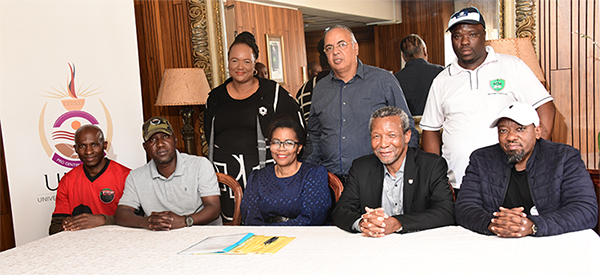
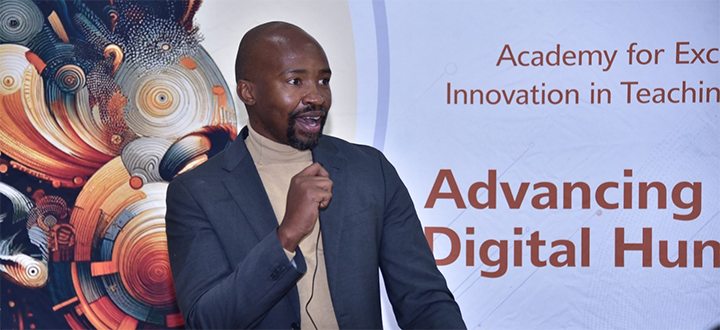 Unisa launches unique digital humanities initiative
Unisa launches unique digital humanities initiative
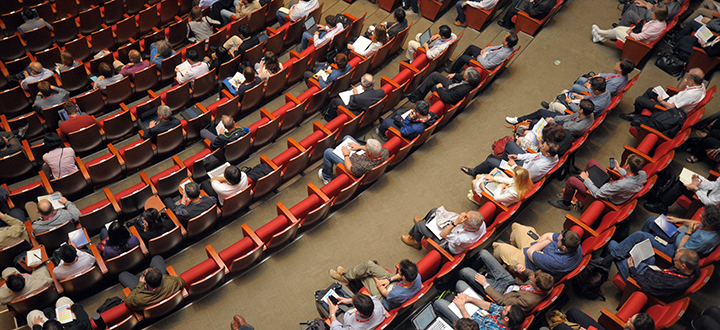 Unisa Catalytic Niche Area Research Symposium seeks to demystify misconceptions about expectations and research in the CNAs
Unisa Catalytic Niche Area Research Symposium seeks to demystify misconceptions about expectations and research in the CNAs
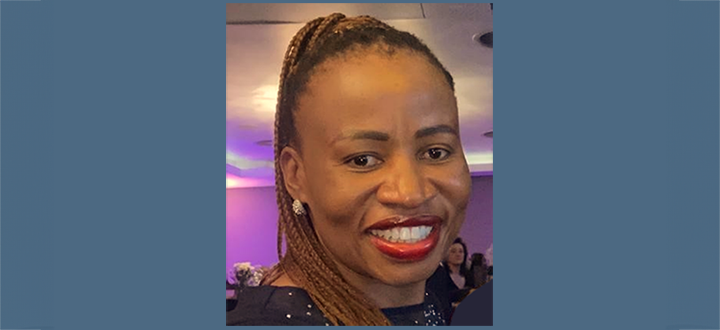 Unisan's input key to successful National Risk Report
Unisan's input key to successful National Risk Report
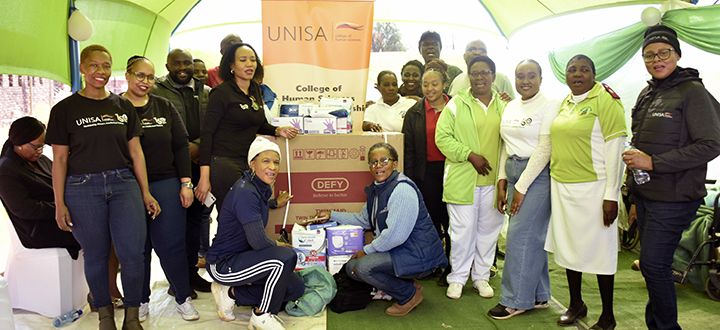 Unisans commemorate Mandela Day with the elderly
Unisans commemorate Mandela Day with the elderly
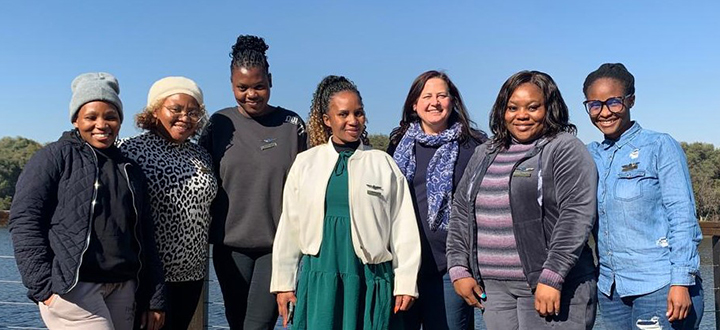 Open opportunities for women in the drone industry as Drone Divas continue on their journey
Open opportunities for women in the drone industry as Drone Divas continue on their journey